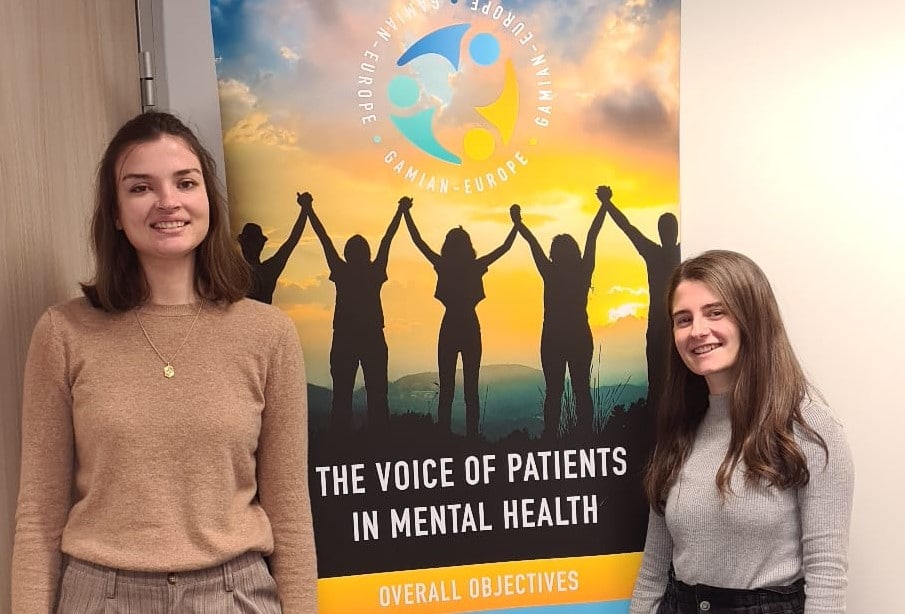The Global Alliance of Mental Illness Advocacy Networks-Europe (GAMIAN-Europe) is a patient-driven organisation that represents and advocates for people experiencing mental health challenges. Compass is supporting GAMIAN’s Quality of Life project, set up to understand patients’ perspectives on quality of life and share approaches for managing a better quality of life.
We spoke to Daphne Lamirel and Greta Alliaj from GAMIAN-Europe, to find out more about the new patient guide they’ve written as part of the project. You can download the guide here.
The guide contains top tips for finding and achieving quality of life beyond a mental health condition. How did you decide on this topic?
Quality of life matters because it’s ultimately about making life more meaningful, which can be a struggle for people with a mental health condition. However, even for people with a severe and enduring illness, it is possible to create a fulfilling life. That’s what’s meant by “beyond a mental health condition”; people are not doomed by their diagnosis. It also refers to the idea that recovery doesn’t only depend on formal mental health treatment (though this is obviously very important), but often also on making lifestyle changes and addressing environmental challenges.
We steered away from making the guide about any mental health condition in particular because we didn’t want to label people, and there’s a lot of overlap between the things that are helpful for different conditions.
What’s included in the guide and how did you put it together?
The guide describes seven main areas: accepting yourself and making adjustments; quality of life as a mindset; taking action to change; positive relationships; hobbies and activities; finding your place in society; and self-image, self-identity and self-perception.
To put the guide together, we convened two roundtable discussions with people who have lived experience of mental health conditions. We developed specific questions and ran the discussions with a researcher with experience in qualitative methods. Afterwards, the researcher did an informal qualitative analysis on what came out of the discussions and helped us put the guide together.
What were some of the key insights that came out of the roundtable discussions?
One insight that surprised us is that often the biggest step towards recovering from a mental health condition is accepting it. This usually comes from speaking about it openly with others. Another key insight is that hobbies, work, and relationships have as much of a role in recovery as formal mental health treatment. We also learnt that self-help strategies differ greatly between individuals – what helps one person might not help another.
Many people have struggled during the pandemic so this is very timely. Where has the guide been shared and how has it been received?
The guide has been shared with more than 50 of our member organisations, who have circulated it through their own networks. It has also been shared by our partners and other European NGOs.
We’ve had lots of positive feedback from our members. People found it easy to read, comprehensive, and engaging. Many have written to say how helpful they found the guide, especially in the pandemic, when people may have been less able to access mental health services. We were also pleased to hear that participants in the roundtable discussions felt that the guide accurately reflected their insights.
Do you have any advice for how people can best use the guide day to day?
Keep it as a resource and dip in and out. It can be overwhelming to try and absorb all the information in one go, and change really comes through lots of little steps over a long period of time.
Our vision at Compass is a world of mental wellbeing. What does mental wellbeing mean to you?
We believe that wellbeing is more than the absence of a mental health condition. It’s being able to make a contribution to your community, work productively, realise your own abilities – so a combination of being able to function and achieve your goals, and to cope with the normal stresses of life.

Quality of life matters because it’s ultimately about making life more meaningful, which can be a struggle for people with a mental health condition. However, even for people with a severe and enduring illness, it is possible to create a fulfilling life


